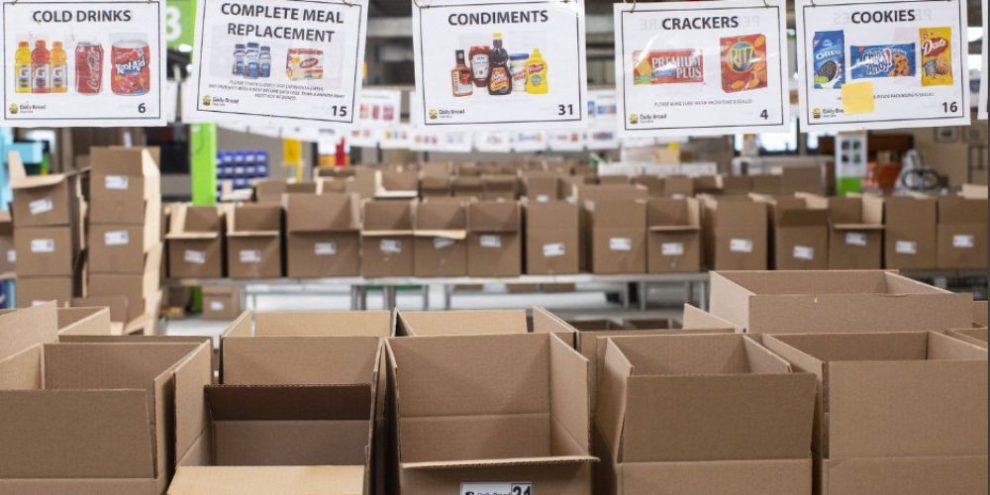
By Sarah Smellie in St. John's
Campaigns for food bank donations are a staple of the holiday season, but some Canadian food insecurity researchers say the appeals can be tough to swallow.
Josh Smee, the executive director of the Newfoundland and Labrador-based non-profit Food First N.L., says he tends to feel conflicted during the holidays when calls ramp up to donate to local food banks, often accompanied by messaging about ending hunger.
Hunger is an income issue, he said, adding people don't have enough food because they don't have money to buy it.
Smee said donating to food banks won't put more money in the pockets of people who rely on them for meals, but systemic change — such as increasing minimum wages and income support levels — will.
"The reality of it is that we've built a system where private charity is filling in for where the social safety net should be," Smee said in a recent interview. "Right now it is absolutely imperative that people donate when they can. But I think that when folks make those donations, they should also be reaching out to decision makers to let them know that it's not acceptable that these circumstances exist."
Research from Proof, a national food insecurity working group based at the University of Toronto, shows nearly 16 per cent of households across Canadian provinces adjusted their diets or simply went without in 2021 because there wasn't enough food on hand.
In the same sample, researchers found about 63 per cent of households receiving social assistance or income support last year were food insecure. The same was true of nearly 14 per cent of surveyed households where income came from wages or salaries, the group's research said.
Meanwhile, annual social assistance rates for a single person in 2021, including tax breaks, ranged from $7,499 in New Brunswick to $13,838 in Prince Edward Island, according to a report released last week by Toronto-based anti-poverty think tank Maytree.
Smee said he wants to see provincial governments index social assistance rates to inflation and raise minimum wages. He's also part of an effort to encourage the Newfoundland and Labrador government to implement a basic income program.
"Poverty is just so expensive," Smee said. "Effectively, what we're all doing as individual taxpayers ... is we're subsidizing keeping income support rates low and keeping wages low. Because those folks are then reaching out for either state supports or charity."
Lynn McIntyre, emeritus professor of community health at the University of Calgary's medical school, said she feels despair every year as people are urged to donate to local food banks.
"I think I've gone past despair, but I still haven't reached resignation," said McIntyre, who is part of the Proof research group. "I'm very, very disappointed that we continue to think that this problem that is related to inadequate income can be solved by food."
Food banks first opened in Canada in the early 1980s and were supposed to be a temporary support amid a growing recession, McIntyre said. She said continued government investment into food banks signals that those in power aren't prepared to tackle the root causes of hunger, which include inadequate incomes.
She said she was pleased to hear Smee's organization held a conference Saturday in St. John's, N.L., called "Rethinking Food Charity." The event was aimed at helping non-profits like food banks be more involved in advocating for systemic change.
"I do think that that's really what needs to be said. Don't just drop a can and then say, 'But I I really believe in basic income' or 'I believe in poverty reduction initiatives.' I think we have to absolutely stop these responses and beef up our current system."
Banner image: Boxes wait to be filled with provisions at The Daily Bread Food Bank warehouse in Toronto on Wednesday March 18, 2020. THE CANADIAN PRESS/Chris Young
This report by The Canadian Press was first published Nov. 27, 2022.





